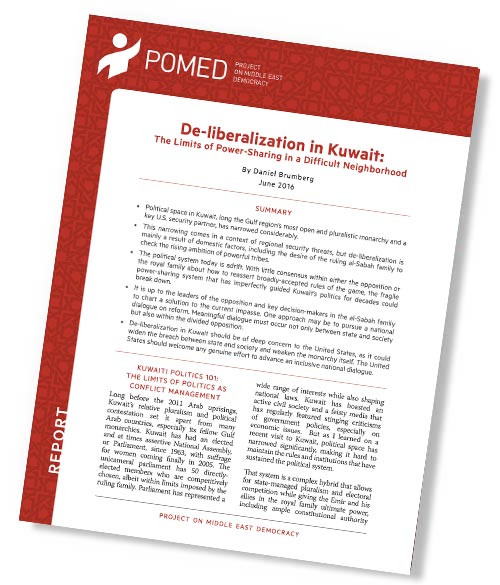In this new POMED Report, “De-liberalization in Kuwait: The Limits of Power-Sharing in a Difficult Neighborhood,” Nonresident Senior Fellow Daniel Brumberg analyzes the dynamics behind the recent narrowing of political space in Kuwait. Drawing from research on a recent visit to Kuwait, he explains why the current authoritarian drift could undermine the country’s stability—and should concern the United States. Finally, Brumberg proposes an inclusive national dialogue as part of a potential solution to Kuwait’s political impasse.
- Political space in Kuwait, long the Gulf region’s most open and pluralistic monarchy and a key U.S. security partner, has narrowed considerably in recent years.
- This narrowing comes in a context of regional security threats, but de-liberalization is mainly a result of domestic factors, including the desire of the ruling al-Sabah family to check the rising political ambition of powerful tribes.
- The political system today is adrift. With little consensus within either the opposition or the royal family about how to reassert broadly-accepted rules of the game, the fragile power-sharing system that has imperfectly guided Kuwait’s politics for decades could break down.
- It is up to the leaders of the opposition and key decision-makers in the al-Sabah family to chart a solution to the current political impasse. One approach may be to pursue a national dialogue on reform. Meaningful dialogue must occur not only between state and society but also within the divided opposition.
- De-liberalization in Kuwait should be of deep concern to the United States, as it could widen the breach between state and society and weaken the monarchy itself. The United States should welcome any genuine effort to advance an inclusive national dialogue.
For the full text of the report, click here.
Photo credit: Kuwaiti Ministry of Information





